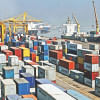When exporters launder crores

In what seems like a story straight out of a Netflix crime drama, a whopping Tk 821 crore has been laundered out of Bangladesh by 33 readymade garment factories and buying houses, over a period of six years. According to a report by this daily, the criminals recorded prices that were up to 10 times lower than the actual rate in their invoices, or used the wrong code, with exports worth hundreds of crores of taka shown as "samples." These findings were revealed after a six-month investigation was carried out by the Customs Intelligence and Investigation Directorate (CIID). We applaud the CIID for unearthing what is one of the biggest known money laundering scams in the country, but we also urge the authorities to ask some crucial questions now that the crime has come to light.
To begin with, how is it that a forgery of such a massive scale went on undetected for so long? The CIID analysed the export data of these companies from January 2017 to May 2023, which means that for at least six years the fraudsters have been submitting false documents without anyone noticing anything suspicious. For instance, Dhaka-based buying house shipped 14,085 tonnes of clothing items worth Tk 308 crore to the UAE, Singapore and Malaysia in 2022, but showed 1,342 consignments as "sample goods," which don't fetch any export earnings. Is it logical for one buying house to send so many sample goods without raising any red flags? We cannot help but wonder what kind of monitoring systems are in place in the customs department to ensure that dishonest exporters are not regularly and easily swindling them.
The more alarming assumption would be that insiders within the customs department assisted the criminals in carrying out the long con. The CIID – and if needed, external investigators from law enforcement agencies – must investigate the serious possibility of involvement of customs officials in the scam. Furthermore, moving forward, it must be ensured that the investigators can carry out their work without undue pressure from high-ups. According to a CIID official, many powerful organisations and individuals at home and abroad are involved in the crime, and they must be named and brought to book, no matter how high-profile they are, or how much money they have.
The export forgery should come as a wake-up call for the authorities to bolster their inspection and monitoring and to weed out dishonest collaborators within their fold. The Tk 821 crore forgery may only be the tip of the iceberg.


 For all latest news, follow The Daily Star's Google News channel.
For all latest news, follow The Daily Star's Google News channel. 









Comments